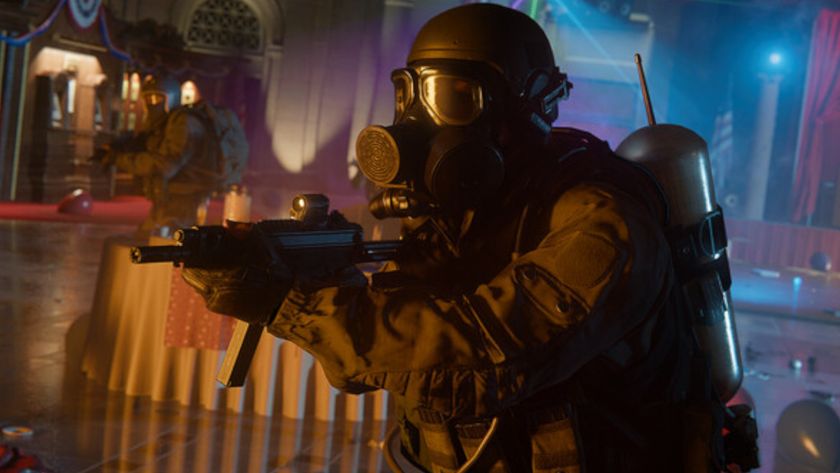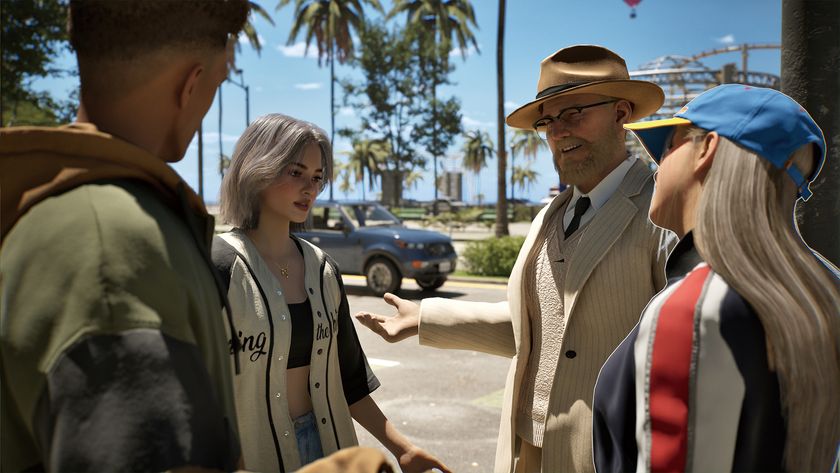The Black Ops teams had unparalleled expertise in more or less every field of combat you could imagine, and this opens up a world rich with potential. We’ve experienced levels where you flit from specialty to specialty, always thinking on your feet, never knowing what the next obstacle will bring. We’ve guided grounded troops from the air, joined the troops on the ground, battled our way covertly through an underground tunnel and rappelled down a cliff face. The only thing we didn’t get to do was catch our breath in between.
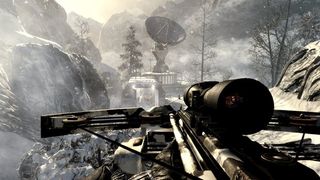
“Pacing is a huge part of what Black Ops is all about,” interjects Lamia. “We’re always thinking about where, psychologically, we want you to be. We’re not talking about differences between levels, we want players to feel the change of pace from ‘beat-to-beat’ – to always be wondering what’s around the next corner.” In a nutshell, if variety is the spice of life, then Black Ops will have to come packaged with naan bread.
Despite the wealth of possibilities it brings, it cannot be ignored that the Cold War setting sees the Call of Duty franchise enter another new arena of conflict: this time in a political sense. The series has of course courted controversy before – most notoriously with Modern Warfare 2’s ‘No Russian’ level – but this is a bold new era for the series, which has previously played it safe. It’s very easy to see World War II in black and white; winners write the history and there’s no ambiguity over who the good guys were.
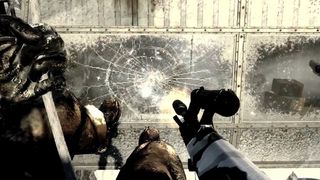
Modern Warfare is set in a fictitious universe. But the conflicts covered in Black Ops’ timeline – Vietnam, Cuba – these are, in comparison, quite morally ambiguous wars. The least you can say is that America did not survive these battles with its reputation entirely intact. Is the traditionally jingoistic American audience ready to mix entertainment with soul-searching? This isn’t an issue according to Olin, who indicates that Black Ops concentrates on the personal rather than the global.
“We’re not telling the story of the Vietnam War,” he elaborates. “Portions of the game take place in Vietnam, but you’re not fighting any specific battle from that war. For example, in Slaughterhouse, your mission is to infiltrate the compound and recover a piece of key intelligence. So while the battle of Hue City is going on around you, you are not a regular marine on the battlefield attempting to win the city back. You’re there to accomplish your objective and get the hell out!”

Nevertheless, Vietnam remains a political hot potato that few dare to prod with a fork even after all these years, but Olin vehemently denies that Black Ops is out to make a political statement. Treyarch’s remit, he notes, is to entertain and that’s the be-all and end-all. These theaters merely act as backdrops to the Black Ops’ personal journey through the wars, but real-life events will not be embellished or ignored, as Olin admits. “We went to great lengths researching this era to create a ‘believable fiction’. At the end of the day, our story is 100% original and fictional. It just weaves its way through historical reference points in time; through various conflicts of the Cold War that you may or may not have heard about.”
Although the devs claim they’re not looking beyond Black Ops, the hope internally within Treyarch must be for it to become a series within a series – its own equivalent to Modern Warfare. The key elements for this to happen are in place: a dedicated, enthusiastic team with experience; a strong, proven game engine capable of handling detailed war environments at a smooth 60 frames per second; and the time and space for the developers to do the concept justice.
Sign up to the GamesRadar+ Newsletter
Weekly digests, tales from the communities you love, and more
But although knowledge is important, so, of course, is creativity. Finally free of the shackles that saw them as prisoners of World War II, Treyarch is keen to show the world what it’s capable of, and it’s throwing its entire technical prowess at a thematically unique universe that can be mined for resources time and time again, without ever repeating itself.
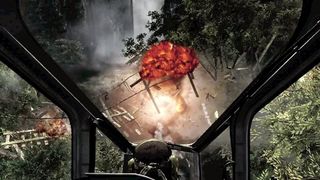
The pressure to perform must be intense, even if Treyarch isn’t letting it show. But as long-time students of the Second World War, the devs will surely be familiar with General George S. Patton’s wartime quote “pressure makes diamonds.” In the fallout of Infinity Ward’s meltdown, videogame warfare may have just found a new hero. A true diamond in the rough?
Jul 14, 2010
